“Undoing the Knots: Five Generations of American Catholic Anti-Blackness” examines anti-Blackness in American Catholicism through five generations of a family’s history, exploring systemic racism and calling for healing and justice within the Church and society.
Overview of the Book “Undoing the Knots: Five Generations of American Catholic Anti-Blackness”
“Undoing the Knots: Five Generations of American Catholic Anti-Blackness” is a provocative exploration of anti-Blackness within American Catholicism, tracing its roots through five generations of a Catholic family. Author Maureen H. O’Connell weaves personal and historical narratives to uncover how systemic racism has been perpetuated within Catholic institutions. The book examines the Church’s complicity in racial injustice, from early immigration to modern times, and calls for meaningful racial healing and justice. By excavating dangerous memories and leveraging spiritual resources, O’Connell challenges Catholics to confront their entanglements with anti-Blackness and reimagine their faith in pursuit of equity and reconciliation.
Importance of Examining Anti-Blackness in the Catholic Context
Examining anti-Blackness in the Catholic context is crucial for understanding its deep-rooted presence in religious institutions and practices. The book highlights how anti-Blackness is not merely a societal issue but is embedded within Catholic teachings, policies, and cultural norms. By exploring this, the text reveals the moral and theological imperative for the Church to confront its complicity in racial injustice. Such an examination also underscores the need for accountability and reconciliation, urging Catholics to reflect on their role in perpetuating or dismantling systemic racism. This critical lens helps bridge the gap between faith and justice, fostering a more equitable and inclusive Church.
The Role of Personal and Historical Narratives in Understanding Racial Injustice
Personal and historical narratives play a vital role in unpacking racial injustice by offering intimate and relatable perspectives. Maureen O’Connell’s book intertwines her family’s history with broader societal trends, illustrating how individual experiences reflect and shape systemic racism. These narratives humanize abstract concepts, making the complexities of anti-Blackness more accessible. By connecting personal stories to historical events, the book provides a nuanced understanding of how racial injustice has evolved over generations. This approach not only educates but also fosters empathy, encouraging readers to reflect on their own roles and responsibilities in perpetuating or challenging racial disparities within their communities and institutions.

Author Background
Maureen H. O’Connell, an associate professor of Christian ethics at La Salle University, explores racial justice through her work, including her book examining her family’s entanglements with anti-Blackness.
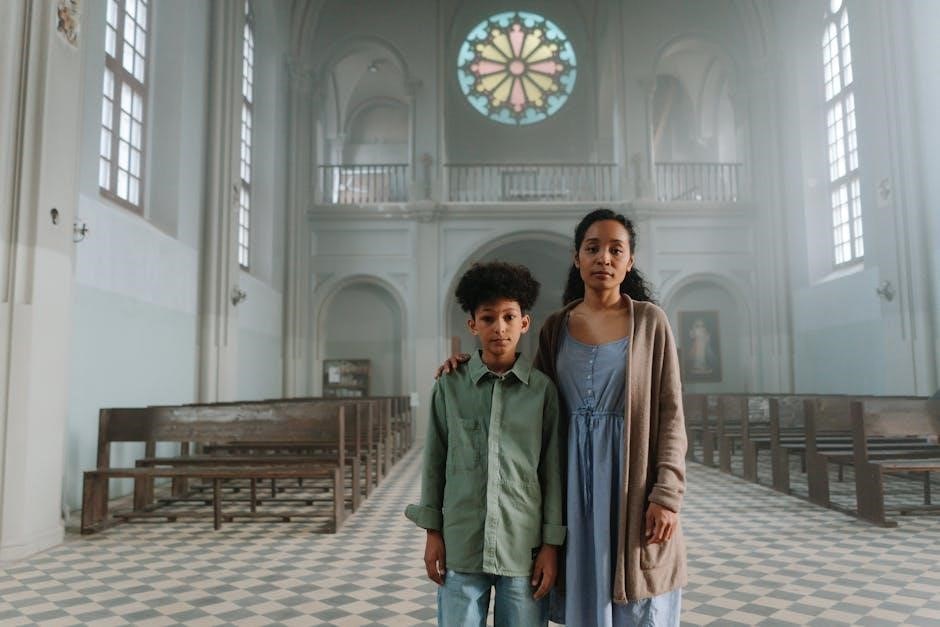
Maureen H. O’Connell: Biography and Contributions to Christian Ethics
Maureen H. O’Connell is an associate professor of Christian ethics at La Salle University in Philadelphia, where she specializes in racial justice and systemic inequality. Her academic work bridges theology and social justice, focusing on the intersection of faith and race. O’Connell’s contributions to Christian ethics are marked by her commitment to addressing anti-Blackness within Catholicism. Her book, Undoing the Knots, weaves personal and historical narratives to expose the deep-rooted racial biases within her own family and the broader Catholic Church. Her work challenges Catholics to confront their complicity in systemic racism and advocates for meaningful reconciliation and justice.
O’Connell’s Academic Work and Advocacy for Racial Justice
Maureen H. O’Connell’s academic work is deeply rooted in exploring the ethical dimensions of racial justice within Catholicism. Her research emphasizes the historical and systemic nature of anti-Blackness, tracing its evolution through generations. O’Connell advocates for a theology that actively resists racism, urging Catholics to confront their complicity in perpetuating racial inequalities. Her scholarship challenges institutions, particularly Catholic universities, to address their failures in promoting racial justice. By integrating personal narratives with historical analysis, O’Connell’s work provides a compelling call to action, urging the Catholic Church to embrace reconciliation and strive for a more equitable future.
Historical Context of Anti-Blackness in America
The roots of anti-Blackness in America trace back to slavery and segregation, shaping systemic racism that the Catholic Church both challenged and perpetuated over centuries, leaving lasting societal and religious implications.
The Roots of Anti-Blackness in American Society
The origins of anti-Blackness in America are deeply embedded in the transatlantic slave trade and the dehumanization of Black people for economic gain. Slavery institutionalized racial hierarchies, casting Black individuals as inferior, a narrative reinforced by legal systems, cultural norms, and religious justifications. The legacy of these practices persisted through Jim Crow laws, segregation, and systemic discrimination in education, housing, and employment. This historical foundation laid the groundwork for contemporary manifestations of anti-Blackness, perpetuating racial disparities and injustice. Maureen O’Connell’s work highlights how these roots extend into the Catholic Church, revealing a complex interplay of faith, race, and power.
The Catholic Church’s Complicated Relationship with Race
The Catholic Church’s relationship with race is marked by a history of complicity and silence, often failing to challenge systemic racism. From the transatlantic slave trade to segregation, Catholic institutions frequently perpetuated racial hierarchies, with some leaders even using religious doctrine to justify oppression. While the Church has made efforts to address racial injustice, such as through social teachings like Catholic Social Teaching, critics argue these efforts often fall short of meaningful action. Maureen O’Connell’s work critiques this legacy, highlighting how the Church’s inaction has allowed anti-Blackness to persist. The book calls for a reckoning with this history to foster true reconciliation and justice.
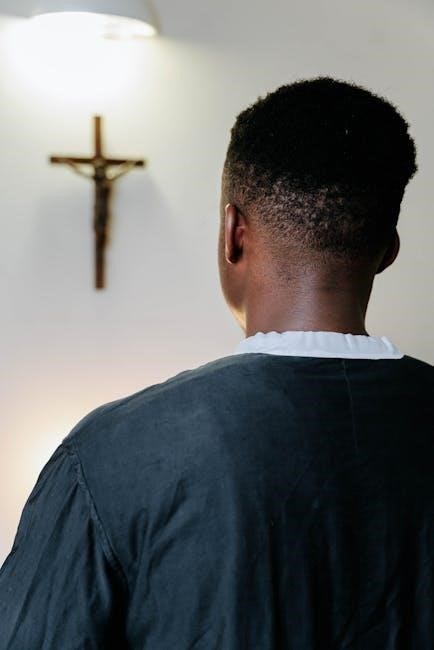
Five Generations of Anti-Blackness
The book traces five generations of Catholic anti-Blackness, from early immigration to modern times, revealing how personal and institutional racism evolved, perpetuating racial injustice and calling for change.
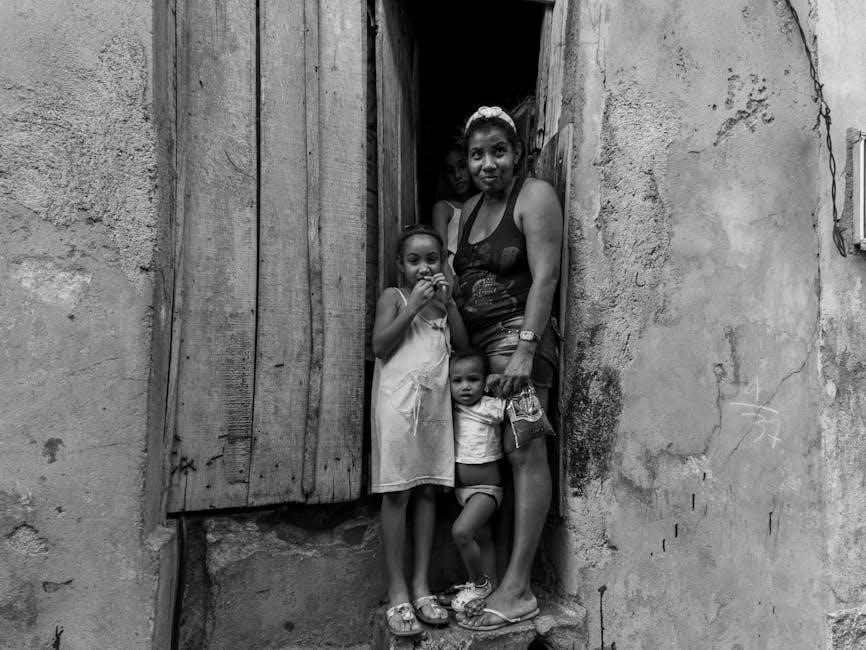
Generation 1: Immigration and Early Encounters with Race in America
The first generation traces the arrival of O’Connell’s Catholic ancestors in America, exploring their initial encounters with race and how their immigrant identity intersected with emerging anti-Black sentiments. These early immigrants, seeking opportunity, often adopted racial hierarchies to assimilate, unintentionally contributing to systemic racism. The family’s entanglement with race began here, reflecting broader Catholic immigrant experiences. This period laid the groundwork for future generations’ complicity in anti-Blackness, as cultural and religious identities became intertwined with racial biases. O’Connell’s narrative highlights how these early encounters set the stage for a legacy of racial injustice within Catholic communities.
Generation 2: The Rise of Institutional Racism and Catholic Complicity
This generation marks the entrenchment of anti-Blackness within Catholic institutions, as the Church and its members increasingly supported systemic racism. Catholic schools, hospitals, and other institutions often perpetuated segregation and discrimination, reflecting broader societal norms. O’Connell examines how Catholic complicity in racial hierarchies became institutionalized, with Church leaders failing to challenge unjust laws and practices. This era saw the normalization of anti-Black attitudes within Catholic communities, further marginalizing Black Americans. The family’s story reveals how even well-intentioned individuals contributed to racial injustice through silence and complicity. This generation set the stage for the long-term consequences of unchecked anti-Blackness within American Catholicism.
Generation 3: The Civil Rights Era and Catholic Responses
The Civil Rights Era marked a pivotal moment in America, with Catholics playing an active yet conflicted role. While some Catholics participated in the movement, advocating for racial justice, others resisted change. Maureen O’Connell highlights how Catholic institutions often lagged in addressing systemic racism, reflecting broader societal tensions. The Church’s hierarchy struggled to unify its stance, with some leaders supporting equality while others maintained segregationist views. This generation reveals the duality of Catholic engagement—simultaneous progress and complicity. O’Connell’s family history illustrates how even well-intentioned individuals grappled with anti-Blackness, showcasing the Church’s internal contradictions during this transformative era.
Generation 4: Modern Manifestations of Anti-Blackness
In “Undoing the Knots,” Maureen O’Connell examines how anti-Blackness persists in modern Catholic contexts, often subtle but deeply ingrained. This generation grapples with systemic racism within Catholic institutions, such as universities and parishes, where diversity initiatives often fall short. O’Connell highlights how white Catholics may acknowledge racial injustice intellectually but fail to actively dismantle it. Personal narratives reveal discomfort with racial discussions, reflecting broader societal avoidance. The book critiques performative allyship and calls for transformative change. O’Connell’s analysis underscores the tension between Catholic teachings on justice and the lived experiences of Black Catholics, emphasizing the urgent need for accountability and authentic solidarity in addressing anti-Blackness today.
Generation 5: Contemporary Challenges and Calls for Change
In “Undoing the Knots,” Generation 5 represents the current era of reckoning with anti-Blackness in American Catholicism. Maureen O’Connell highlights the ongoing struggles of racial injustice, emphasizing the Church’s complicity in systemic racism. Younger generations are increasingly vocal about the need for transformative change, advocating for accountability and equity within Catholic institutions. O’Connell calls for a reexamination of Catholic identity, urging individuals and institutions to confront their roles in perpetuating anti-Blackness. This generation’s challenges include bridging the gap between Catholic social teaching and lived experiences of marginalized communities. The book underscores the urgency of fostering meaningful reconciliation and creating spaces for authentic dialogue to dismantle racism and promote justice within the Church and society.

The Catholic Church’s Role in Perpetuating Anti-Blackness
“Undoing the Knots” reveals how the Catholic Church has historically enabled systemic racism, often ignoring its complicity in anti-Blackness while advocating for social justice, highlighting the need for accountability and equity.
Systemic Issues Within Catholic Institutions
Undoing the Knots exposes systemic anti-Blackness within Catholic institutions, revealing how their structures and practices perpetuate racial inequality. O’Connell highlights the failure of Catholic universities to address racism adequately, pointing to a disconnect between the Church’s social justice teachings and its actions. Historical complicity in segregation and discrimination is explored, showing how these institutions have often prioritized maintaining power over fostering inclusivity. The book emphasizes the need for accountability and transformation within these systems to dismantle entrenched biases and create equitable environments for all. By examining these issues, O’Connell calls for a reckoning with the past to forge a more just future.
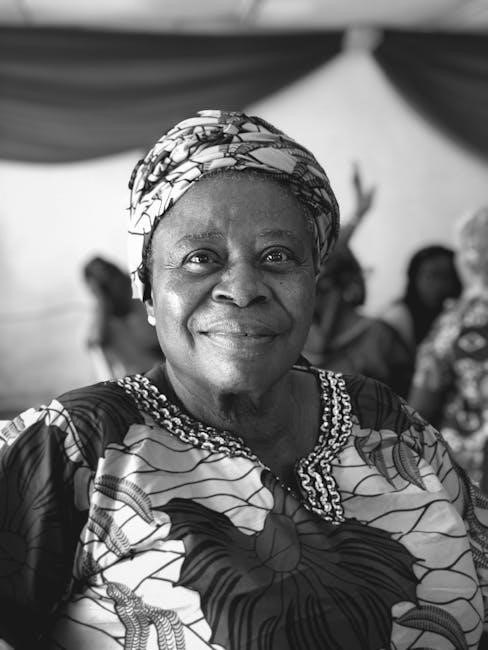
The Failure of Catholic Universities to Address Racism
Undoing the Knots critiques Catholic universities for their inadequate response to racism, highlighting their complicity in perpetuating systemic anti-Blackness. Despite their mission to uphold social justice, these institutions often fail to address racial inequalities within their own structures. The book reveals how their reluctance to confront uncomfortable truths has allowed racism to persist, contributing to a lack of diversity and inclusion. By neglecting to challenge anti-Blackness, Catholic universities have undermined their commitment to equity and justice. O’Connell calls for transformative change, urging these institutions to take accountability and implement policies that dismantle racial disparities and foster inclusive environments for all.
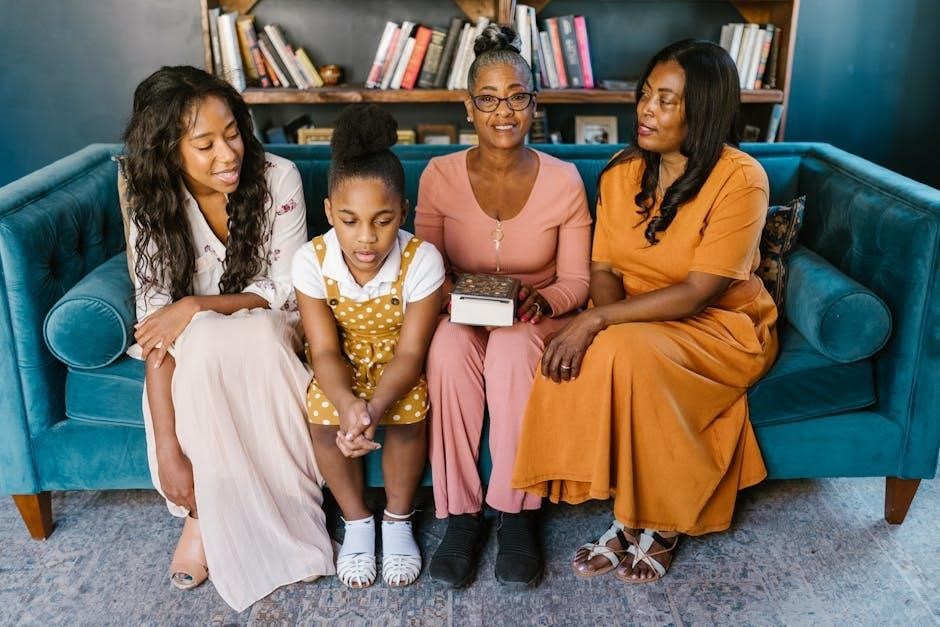
Personal Narratives and Their Impact
Maureen O’Connell’s personal and historical narratives offer a powerful lens to examine anti-Blackness, bridging family experiences with systemic racial injustice, and illuminating the need for healing and justice.
O’Connell’s Family History as a Lens for Broader Social Issues
Maureen O’Connell’s family history serves as a microcosm for understanding systemic anti-Blackness within American Catholicism. By excavating her family’s entanglements with race and racism, O’Connell traces how five generations of Catholic heritage reflect broader societal issues. Her narrative bridges personal and historical contexts, revealing how anti-Blackness became deeply embedded in Catholic institutions and culture. This excavation not only highlights the Church’s complicity in racial injustice but also provides a unique perspective on the intersection of faith, identity, and systemic racism. O’Connell’s approach underscores the importance of personal stories in illuminating historical injustices, making her work both a scholarly and deeply human exploration of race and religion.
St. Patrick’s Day Memories as a Catalyst for Anti-Racist Reflection
Maureen O’Connell’s unsettling St. Patrick’s Day memories serve as a catalyst for anti-racist reflection, transforming a traditionally celebratory occasion into a moment of reckoning with race and identity. These memories, rooted in her Catholic heritage, reveal how even joyous traditions can obscure systemic anti-Blackness. By examining her family’s history, O’Connell highlights how personal narratives can uncover the subtle yet pervasive ways racism operates within seemingly neutral cultural practices. This reflection challenges Catholics to confront their complicity in racial injustice, demonstrating how personal stories can illuminate broader societal issues and inspire transformative change toward racial healing and justice.

Call for Racial Healing and Justice
“Undoing the Knots” calls for meaningful racial healing and justice, urging Catholics to confront systemic anti-Blackness and engage in transformative change through spiritual reflection and collective action.
Spiritual Resources for Resisting Anti-Blackness
Spiritual Resources for Resisting Anti-Blackness
“Undoing the Knots” highlights the role of spiritual resources in resisting anti-Blackness, emphasizing the need for Catholics to reclaim and reinterpret faith traditions to combat racism. O’Connell explores how personal and historical narratives can serve as catalysts for reflection, urging individuals to confront the moral failings of the past. By engaging with dangerous memories and reimagining Catholic identity, the book calls for a spirituality that prioritizes justice and reconciliation. This approach challenges Catholics to move beyond complicity and toward active resistance against systemic anti-Blackness, fostering a more equitable and compassionate faith community.
The Necessity of Meaningful Reconciliation Within Catholicism
Meaningful reconciliation within Catholicism is essential to address the legacy of anti-Blackness, requiring the Church to confront its complicity in racial injustice. O’Connell emphasizes the need for institutional accountability and a commitment to dismantling systemic racism. True reconciliation involves not only acknowledging past wrongs but also actively working to heal and transform relationships. By engaging with dangerous memories and reimagining Catholic identity, the Church can move toward a more inclusive and equitable future. This process demands spiritual reflection, educational efforts, and a collective resolve to resist anti-Blackness in all its forms, fostering a faith community that prioritizes justice and compassion.
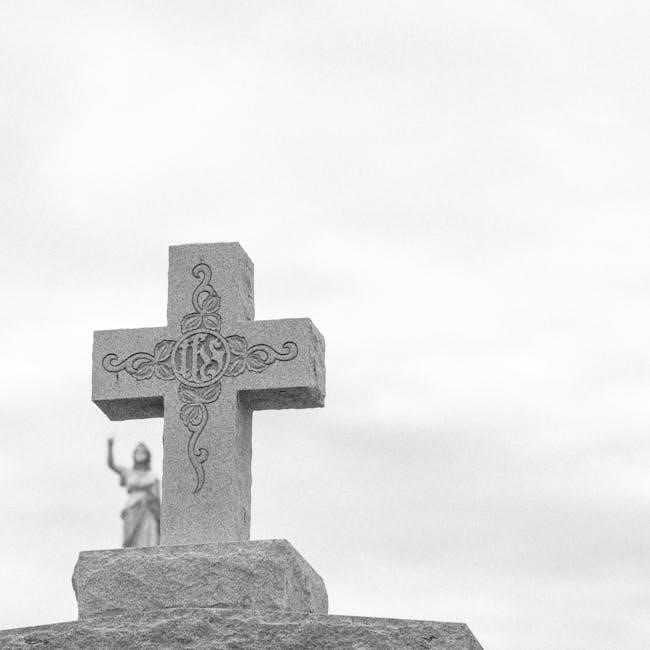
Cultural and Theological Implications
O’Connell’s work reveals how Catholicism’s cultural and theological frameworks have been shaped by anti-Blackness, urging a reimagining of heritage and identity to promote global equity and justice.
Dangerous Memories and Their Role in Healing
Dangerous memories, as explored in O’Connell’s work, are those that disrupt complacency and force confrontation with historical injustices. By examining her family’s entanglements with anti-Blackness, O’Connell reveals how these memories can provoke moral reckoning and inspire transformation. Such memories, rooted in the Catholic tradition, challenge individuals and institutions to grapple with the legacy of racism and its ongoing impact. This process of remembering and reflecting is not merely about the past but about fostering a present and future marked by justice and reconciliation. O’Connell argues that these memories are essential for undoing the knots of anti-Blackness and reclaiming a theology of liberation and equality.
Reimagining Heritage and Identity in a Globalized World
O’Connell’s work challenges readers to rethink heritage and identity in a globalized context, particularly within Catholicism. By tracing her family’s history, she illustrates how cultural and religious identities are shaped by historical injustices. The book invites a reexamination of how whiteness and anti-Blackness have been embedded in Catholic heritage, urging a shift toward a more inclusive and equitable understanding of faith and culture. This reimagining is not just about the past but about creating a future where heritage is defined by solidarity, justice, and the recognition of shared humanity. Such a vision aligns with the broader goals of racial healing and reconciliation in a globalized world.
“Undoing the Knots” reshapes modern discourse on race and faith, offering a powerful path for Catholicism to confront its past and strive for racial justice.
The Significance of “Undoing the Knots” in Modern Discourse
The Significance of “Undoing the Knots” in Modern Discourse
“Undoing the Knots” stands as a pivotal work in contemporary discussions on race, religion, and justice. By weaving personal and historical narratives, Maureen O’Connell’s book challenges the Catholic Church and American society to confront entrenched anti-Blackness. Its unique approach bridges the past and present, offering a lens to understand systemic racism’s persistence. The book’s emphasis on dangerous memories and spiritual resistance provides a framework for reckoning with injustice. In a time of heightened racial awareness, “Undoing the Knots” emerges as a critical call for reconciliation, urging Catholics to grapple with their complicity and commit to transformative change. Its relevance lies in its ability to spark urgent, necessary conversations about faith, identity, and justice.
A Path Forward for Catholicism and Racial Justice
“Undoing the Knots” offers a compelling vision for Catholicism’s role in racial justice, emphasizing the need for accountability, dialogue, and education. Maureen O’Connell argues that confronting the Church’s historical complicity in anti-Blackness is essential for meaningful change. She calls for Catholics to engage in self-reflection, acknowledging past failures while leveraging spiritual resources to resist racism. By integrating diverse voices and experiences, the Church can foster a more inclusive and equitable community. O’Connell’s work underscores the importance of systemic reform and personal transformation, urging Catholics to embrace their responsibility in dismantling racial injustice and building a future rooted in solidarity and justice.

